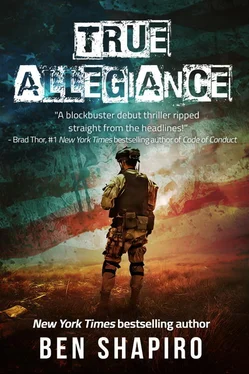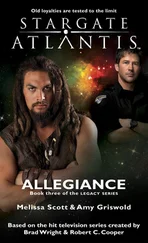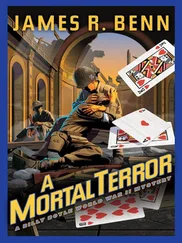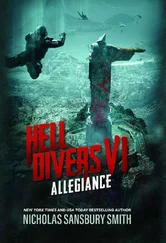Thankfully, that was his specialty.
“So,” Prescott said, “what’s your take?”
The analyst cleared his throat. “Let me start at the beginning. You remember 9/11?”
Prescott nodded amiably.
“Okay, so in the couple of months right before 9/11, there was a huge jump in currency in circulation. That probably means that somebody—somebody with an awful lot of money in domestic bank accounts, for example—cashed out in order to avoid blowback after the attacks. See, they figured that if they were tied to the attack, their bank accounts would be frozen. So they preemptively grabbed their money and took it out of the bank.
“But that wasn’t the end of the story.” The analyst pushed his glasses up on his nose, his face reddening with his growing excitement. Prescott stifled a yawn. “Right before the attacks, somebody started shorting airline stocks.”
Prescott’s look of bewilderment was Tommy Bradley’s cue to jump in—the chief of staff knew that Prescott would never admit to not understanding something. Part of his job involved taking that hit. “In English, please?” said Tommy.
“Shorting is where the price of, say, a share of McDonald’s stock is now at $20. I tell you that I’m going to sell you stock in McDonald’s next week for $10. Great deal for you, right? So here’s my plan: I’ll borrow a stock from the president. Then, I’ll wait until next week, hope the stock is at $6, and sell the stock to you at $10. I’ll buy a second stock and then go back to the president and give it back to him. I make $4. Now, the simple act of me selling you that option to buy for next week drives down the stock price, because I’m inventing a whole new supply of stock that doesn’t even exist yet. So it’s sort of a self-fulfilling prophecy.
“Well,” continued the analyst, “that’s what happened in the days before 9/11. There were a huge number of foreign reports about people seeking to borrow shares. The volatility in the airline shares jumped 30 percent between September 4 and September 7. Then, boom, September 11. The airlines get slammed. Stocks go through the floor. Somebody makes a bundle. Somebody who knew in advance.”
Prescott leaned forward. “So what are you trying to say?”
“What he’s trying to say,” growled Collier, “is that we’re about to get hit. Hard.”
“And,” said Prescott, turning to the analyst, “you think that this is going to happen soon?”
The analyst shrugged. “Could happen any time. I’m just picking up some signals.”
Prescott thumbed his chin thoughtfully. “Seems to me,” he said slowly, “that the 9/11 Commission report rejected all of that.” Tommy found himself surprised. He didn’t know Prescott had read the report.
“That report was flawed. Knew it at the time. Everybody did,” said Collier.
“And just what are your credentials, again?” Prescott said to the analyst.
The analyst’s eyes moved to the floor. “Well, you know,” he mumbled, “I was an investment advisor.”
Prescott’s eyes flashed. “And this makes you an expert on economic terrorism?”
Collier broke in again. “Mr. President, this information should be fully analyzed, tracked down. Just for the sake of covering our bases.”
“And just whom do you believe is moving this money around?”
“The money has been gathered in anonymous accounts. They’re known as dark pools. We don’t know who exactly holds the cash, but we have some guesses. The Iranians. The Chinese…”
“Guesses?” The president leaned forward. “You do understand that we have a very valuable trading relationship with China. If we move forward with a covert investigation, what are the chances the Chinese find out?”
Collier shrugged. “I’d say fifty-fifty.”
Prescott spoke slowly. Like Collier was a third-grader. Which, in Prescott’s mind, he essentially was. “Fifty-fifty. So you want me to risk our entire trade relationship with China—a country whose way of life is based on honor—based on a hunch from a random analyst with a background as an investment advisor?”
The general grunted. “All I’m saying is that we ought to check it out, sir. If only to cover our asses should something go wrong.” Collier hoped Prescott would take the broad hint.
Prescott didn’t. “Well, I disagree. This discussion is tabled.” He stood up. “Gentlemen, thank you for your time.”
The abruptness of the move startled the analyst, who jumped to his feet, stammering. “But Mr. President—this could mean…”
“I know what it could mean. But so could a thousand other things. Do you have any idea how many intelligence briefings cross my desk? I do appreciate your diligence. But I’ll have to have my people look into your claims.” He gripped the analyst’s hand. Hard. “And I’ll insist that you keep our meeting today under wraps. Can’t be too careful, with the things the press will print.” The Prescott smile emerged. Bill Collier felt his chest grip up with anger. But the meeting was over.
Fifteen minutes later, Prescott was on the phone with the Chinese premier, who quickly acquiesced to the request for a major bond buy by the Chinese government. Prescott thanked him profusely, promised him that the United States understood the position of the Chinese government with respect to military exercises in the South China Sea, but asked that the exercises take place sporadically rather than all at once, and then hung up. And they say the Chinese are tough to deal with , Prescott thought to himself.
Seconds later, his intercom buzzed.
“Mr. President?” said his secretary, a hot little handpicked blonde number named Marissa. “I’ve got the governor of Texas for you.”
“Can we take a rain check?” Prescott felt too high to be brought down by the fat turd from the Lone Star State, that arrogant, bullheaded used car salesman. He hated Bubba Davis—who named their child Bubba, aside from dumb hicks from the South?—and didn’t want to hear his drawl ruining his day.
“He says it’s urgent, Mr. President.”
Prescott groaned and picked up the headset. “Put him through.”
The line beeped once. “Governor Davis, you are on with the president of the United States.”
“Mr. President.” Davis’s voice was thick with anger.
“What can I do for you, Bubba?”
“You could send me some troops to the border, is what you could do. I’m sure you saw on the news about my staffer.”
Prescott kicked off his shoes, put his feet on the desk. “Yes, sir, I sure did.” He found himself accidentally blurring into a drawl of his own when he talked with the rednecks. “Tragic. Just tragic. Not sure what anybody could’ve done about it, though.”
“ You could have done something about it. You still can. It’s an act of war.”
“It’s not an act of war, Governor, if it’s not by a foreign government.”
A pause. Then the storm. “Horseshit, Mr. President. You know as well as I do that the Mexican government is run by the cartels. And they killed one of my people. One of your people. Came right across the border in that helicopter and shot her right in front of my chief of staff. I got dead kids washing up on the Rio Grande and you’re slammin’ me in the press for tryin’ to do something about it. What in the Sam Hill is wrong with you?”
Now Prescott’s ire was up. It was one thing to disagree with him. It was another to lecture him. Nobody got away with that shit. Nobody.
“You put troops on that border without my go-ahead, they’re not going to have any power,” he said. “You can give them the power to arrest, but as you know, anyone they arrest will then be processed by my Immigration and Customs Enforcement department. And we aren’t interested in noncriminal undocumented immigrants.” Prescott could almost hear Davis bristle at the euphemism. Good. He continued, “You can do what you want, but in the end, it’s our choice anyway.”
Читать дальше












